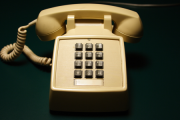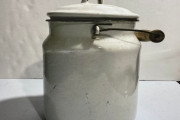A month later, I had moved to Ottawa, arriving by car from Toronto in a blizzard on Grey Cup Day. A mere two years before the Surrey prep school, I had been living in South America and attending an international school on the lower slopes of the Avila mountains in Caracas, the capital of Venezuela, in anticipation of an imminent move to Genoa in Italy. The refrigerator had already been marked ‘Italia’ in readiness for the move. In Caracas I had spent eight years of my childhood in perpetual tropical sunshine, as an exile from the birthplace I could not remember: St. George’s Hospital, at Hyde Park Corner, between Buckingham Palace and Harrod’s of Knightsbridge, in London, England.
As the wind whipped snow against the side of the school building that cold winter’s day in Mr. McCarthy’s class fifty-seven years ago, I had been idly turning over in my mind questions that had been preoccupying me for some time, ‘Who am I? Where do I belong?’ All teenagers want to know this in those uncertain difficult years leading to adulthood, but with so many moves on three continents in quick succession—a mid-rise apartment and seven very different houses in ten years—the issue of identity had become one of paramount importance to me. It had an even greater urgency at the time because this sense of displacement took place in the years before Canada’s centennial year, a time, for all those whose memories reach back that far, of national self-doubt, when the very question of what constituted “Canadian identity” itself was a matter for interminable agonized navel-gazing among the chattering classes at the CBC. For Canada was then, as poet Al Purdy once tartly observed, an “adolescent land.” I was an adolescent then, too.
And suddenly, the resolution to this question leapt out at me from the pages of the poetry anthology in Tennyson’s words attributed to Ulysses, when the sailor home from the sea declares, “I am a part of all that I have met.” That was it! All that we are is what we have been, what we have seen and felt, and what experience has made us. We are the places we have been, and the people we have met, the books we have read, the music we have loved, and the conflicts we have weathered. Our past is with us, freighted with memory, in everything we do and say. The Canadian-born yet American Jewish writer Saul Bellow called his attitude to his own past “reverence for all the sources of my being.” Then, “I am,” he said, “faithful to what I was.” And the same will be true for the life that lies ahead for each of us. “All experience,” Ulysses continues, “is an arch where through / Gleams that untravelled world, whose margin fades / For ever and for ever when I move…” Life continually brings more and more experiences to shape us and refine us, to modify our assumptions and deepen our understanding, never to deny who we are, but always to add a new dimension to what is already there. We do not replace anything essential, for experience is inclusive, not reductive, and it does not diminish us. Whatever reservations Penelope, Ulysses’ long-suffering wife, may have had about her husband’s imminent second departure, it is clear that he himself was open to new experiences.





Susan1 year ago
A beautiful piece, Peter, and so very true, too.
Thank you for writing it. I always knew intrinsically that I am part of all that I have ever been, seen, or done, but I don’t think I could have expressed it as well as have you.
Susan
Peter1 year ago
Thank you, Susan.
Peter